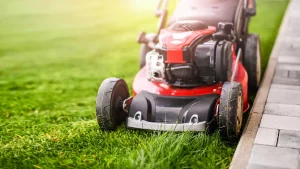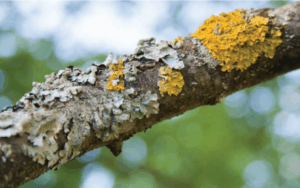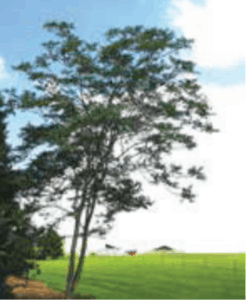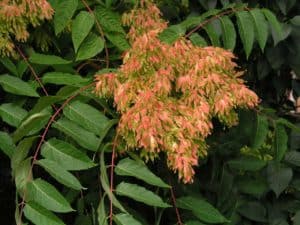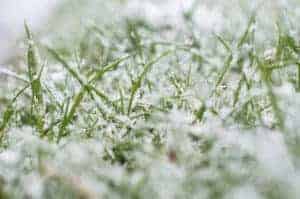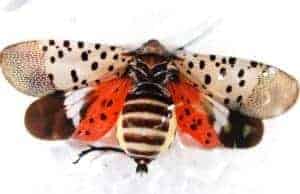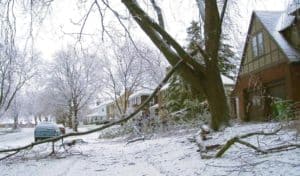-
Are lawn treatment chemicals safe for children and pets?
The fertilizer we use is a SLOW RELEASE granular product, which breaks down over periods of 2-3 weeks. The herbicide is put down in liquid form which is the chemical and it is safe once its dry (usually 20-30 min after applied depending on weather conditions). There is minimal exposure to kids and pets so nothing to be alarmed about.
-
Are pest applications safe for children and pets?
Yes. The only thing we ask is that you keep them away from the treated areas until the material dries. This is usually anywhere from 30-45 mins.
-
Are your products bee-friendly?
None of the lawncare applications being used are neonicotinoid which has been linked to declining bee populations. The granular fertilizer will not drift, and the herbicides used have a low drift potential.
-
Can I mow the lawn after the application was completed?
Yes, we ask you wait at least an hour so the weed control can dry and then it is good to go. **If you bag your clippings, we ask you wait 24 hours for maximum results.
-
Do I have to be home for a pest treatment?
No! You will not have to be home during a regular Pest Control maintenance service, as the treatment is exterior only. Flea, Tick and Mosquito Control services are also exterior only as well. You WILL need to be home if there is an issue that needs to be addressed on the inside.
-
Do I need a treatment during the winter?
Yes! As the days get colder, insects such as rodent and spiders look for areas where they can stay warm. They tend to find your insulated walls and basement and use these to escape the cold. They are less likely to be seen in the open so this is a very critical time to treat.
Many people hate to see the summer come to an end to make way for the frigid days of winter, but one thing that most people welcome is the disappearance of risks associated with Mosquito bites.
Unfortunately, just because the temperatures are reaching freezing temperatures does not mean that mosquitoes disappear. In the fall when temperatures start to fall below 50 degrees Fahrenheit, adult females will deposit their final batch of eggs into areas with as little as a half inch of water. The adult females die off, while the eggs that were just laid enter a state of suspended development during the cold months.
The Aedes Aegypti, also known as the Yellow Fever mosquito, is responsible for transmitting dengue fever, chikungunya, Zika fever, Mayaro and yellow fever viruses. Ensuring that these dangerous biting mosquitoes do not harm your family, here are a few things that you can do around your property:
- Dispose of old tires, buckets, planters and other containers that can hold water
- Empty standing water from each and every container on your property, especially bird baths at least once a week
- Fill in tree rot holes and hollow stumps that hold water
- Clean roof gutters
- Drill holes in the bottom of tire swings
- Make sure all windows in your home have screens in place and repair any holes or tears in screens.
-
How are you able to treat outside if there is snow and temperatures are freezing?
We will not complete a treatment on the snow, but we will focus our attention on the structure and places where pests tend to overwinter. These areas include cracks and crevices around your home’s foundation, under siding, under and around shutters, and windows. This is done to help winterize your home in an attempt to deter future pests as the weather starts to get warmer in the springtime.
-
How do I grow grass under trees?
Some things that can be done so you can get grass to grow under trees is to trim them a little to allow more sunlight to get through. If we get a DRY summer you may need to water these areas to protect them from drying out since the trees when they need water suck everything they can around it to survive. In the fall its always good to toss some seed in these shady areas to get new growth always trying to come in and you stay ahead of it.
-
How do I know if I need grub control?
Beetles actively feeding lay their eggs in the full sun areas of the lawn and their larva eat the root system of your lawn to meet their nutrient requirements. The beautification of your lawn is an investment to which grubs will threaten and do some costly damage. Think of grub control as an insurance policy. It’s a pretty good guarantee protection to avoid a costly mess.
-
How do I know if my lawn needs Lime?
All lawns benefit from Lime. The decomposition of organic matter and continuous rain make the lawns more acidic which signals the need for LIME to neutralize the PH levels in the soil.
-
How long should I avoid the landscape after you treat?
We simply suggest you allow the treatment to dry. About 15-30 minutes is all it takes!
-
How often do you treat for Mosquitoes?
We treat on a monthly basis; no more than 30-35 days in between visits. It is important that we return to treat on a consistent basis in order to ensure full control during the season. The mosquito control treatments are completed from April-October.
-
If there is rain during or after the application was applied would it be effective?
Any light rain is beneficial for lawn treatments. It allows the nutrients to start their breakdown so its absorbed by the roots of the plant. The rain also helps the weed controls absorb into the plant and carry them into the roots to stop its growth. **Please note 10 days after any application if weeds are still present, we come back and re-treat for free since some weeds can be more stubborn then others**
-
What happens if I have a pest issue in between normally scheduled visits?
Treatment for covered pests is FREE if an infestation occurs in between visits.
-
What pests are covered under the Perimeter Pest Control Plan?
We cover all common ‘occasional invaders’ which include crickets, clover mites, earwigs, ground beetles, ants, flying insects (wasps, hornets and bees), spiders, pill/sow bugs, centipedes and millipedes. We also offer rodent prevention and control!
-
What plants are covered with your plans?
All of your landscape plants are covered – everything that’s not grass! This does not mean that every plant will be treated with every visit. Different plants require more attention at different times of the year. That’s why each visit is customized to meet your landscapes specific needs.


